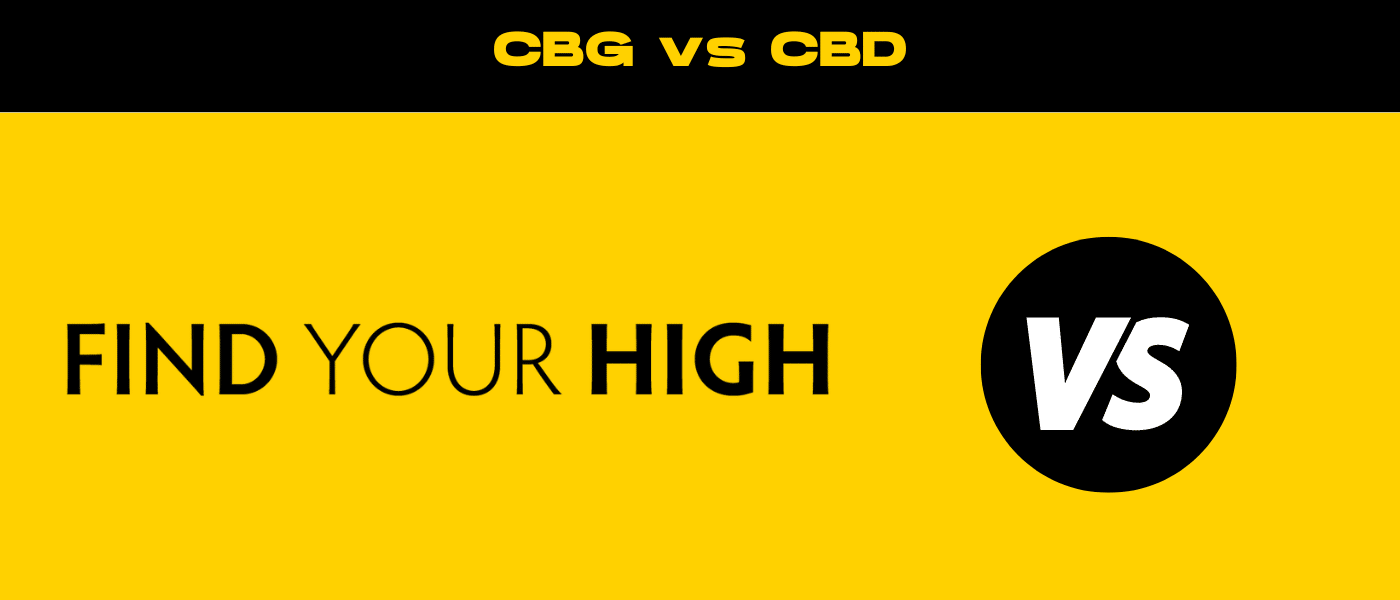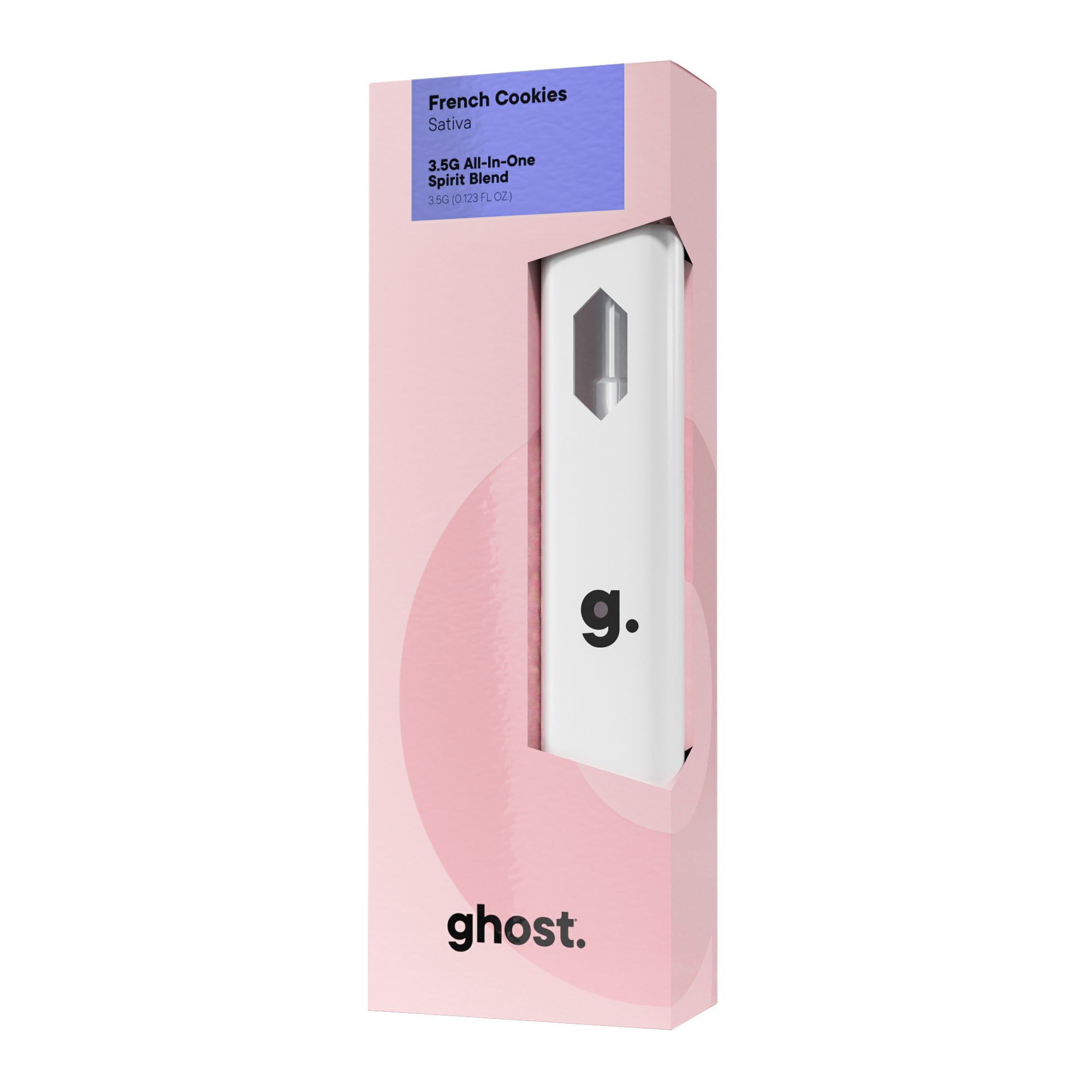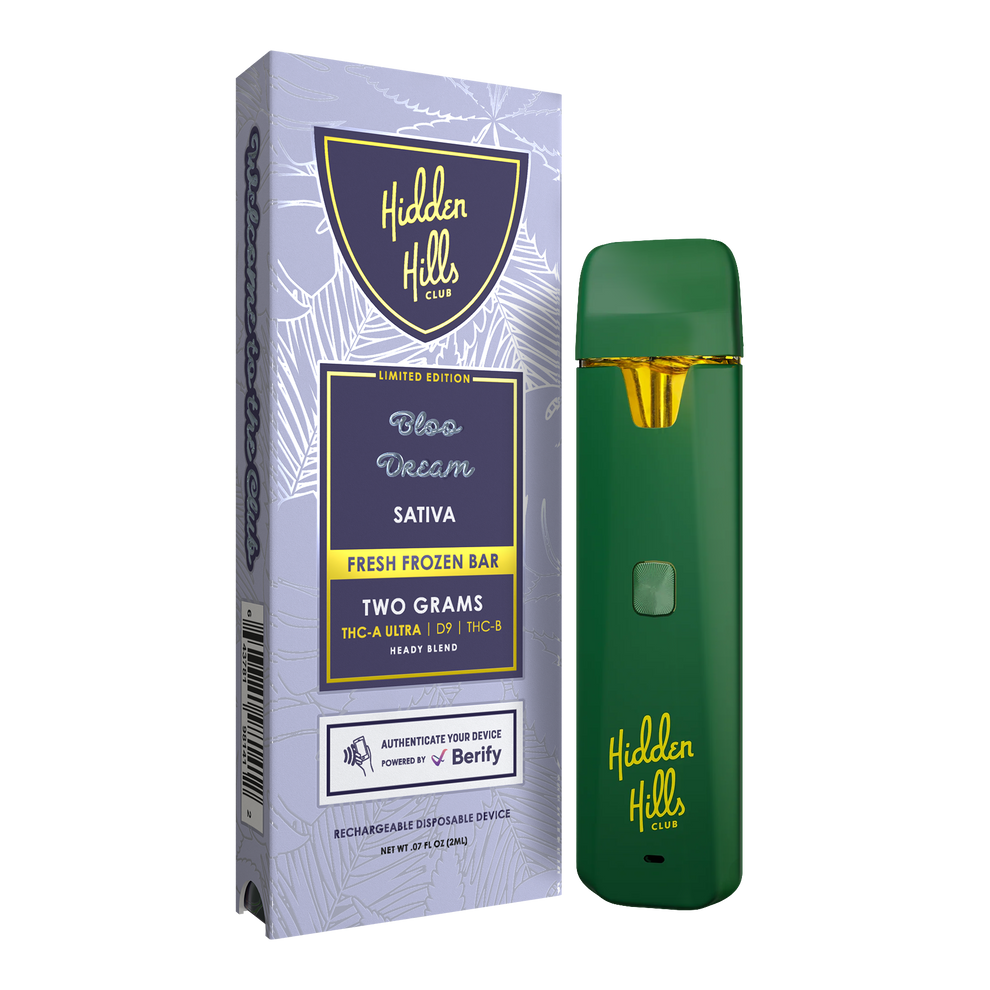The world of cannabinoids is rapidly expanding, and while CBD (cannabidiol) has taken the wellness industry by storm, the minor cannabinoid, CBG (cannabigerol), is rising in popularity. As more people explore natural alternatives for health and well-being, it’s essential to understand the distinct properties of CBG vs CBD.
Both CBD and CBG are derived from hemp and cannabis plants, but their effects, benefits, and mechanisms of action differ significantly. CBD is widely known for its calming effects, potential to reduce anxiety, and role in managing pain and inflammation.
Meanwhile, CBG is often referred to as the “mother cannabinoid” because it serves as a precursor to other cannabinoids, including CBD and THC. Research suggests that CBG may have unique advantages for focus, digestive health, and antibacterial properties, making it a promising alternative or complement to CBD.
So, how do these two cannabinoids compare? Which one is better suited for specific health concerns? And can they be used together for enhanced effects? This blog will break down everything you need to know about CBG vs. CBD, including their differences, benefits, potential side effects, and how to choose the right one for your needs.
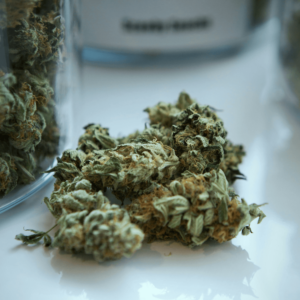
Understanding Cannabinoids: The Basics
To grasp the differences between CBG and CBD, it helps to understand the endocannabinoid system (ECS) and how cannabinoids interact with it. The ECS is a complex cell-signaling system present in all mammals, responsible for regulating mood, appetite, pain, sleep, and immune response. The system includes cannabinoid receptors (CB1 and CB2), endocannabinoids (naturally occurring compounds in the body), and enzymes that break down cannabinoids.
Phytocannabinoids, which come from cannabis and hemp, interact with these receptors in different ways. THC, for example, binds directly to CB1 receptors, creating the well-known intoxicating effects. CBD and CBG, however, work differently. Instead of directly activating CB1 receptors, they influence the ECS in a way that promotes balance and well-being—without the high.
Both CBG and CBD have distinct roles, but they share some overlapping benefits. Understanding what makes them unique will help consumers choose the right cannabinoid for their specific needs.
What Is CBD?
CBD, or cannabidiol, is one of the most well-researched cannabinoids in the hemp plant. Unlike THC, it does not cause intoxication, making it an appealing option for those seeking therapeutic benefits without the psychoactive effects.
CBD interacts with the ECS by indirectly influencing CB1 and CB2 receptors, as well as engaging with serotonin and vanilloid receptors, which contribute to its calming and pain-relieving properties. Because of these interactions, CBD is commonly used for reducing anxiety, improving sleep, alleviating chronic pain, and supporting overall wellness.
CBD is widely available in various product forms, including:
- Oils & Tinctures – Fast-acting and easy to dose
- Edibles (Gummies, Capsules) – Convenient and long-lasting
- Vapes – Rapid absorption, ideal for immediate relief
- Topicals – Creams and balms for localized pain relief
- Beverages & Infused Products – Emerging market for CBD-infused drinks and snacks
With federal legalization of hemp-derived CBD in the U.S. through the 2018 Farm Bill, CBD products are now mainstream, offering a wide range of options for consumers looking to integrate it into their health routines.
What Is CBG?
CBG, or cannabigerol, is a lesser-known but equally important cannabinoid. It is often referred to as the “mother of all cannabinoids” because it serves as a precursor to other cannabinoids like CBD, THC, and CBC.
In young cannabis plants, CBG exists in its acidic form (CBGA) before breaking down into other cannabinoids as the plant matures. Because of this transformation, mature cannabis plants contain very little CBG—typically less than 1%—making it one of the rarer cannabinoids and more expensive to produce.
Unlike CBD, CBG binds more directly to both CB1 and CB2 receptors, potentially leading to stronger effects on the body’s functions. Preliminary research suggests that CBG may be beneficial for:
- Focus and Mental Clarity – Potential support for brain function and neuroprotection
- Digestive Health – Possible relief for conditions like IBS and Crohn’s disease
- Antibacterial & Antimicrobial Effects – Studies suggest CBG may help fight MRSA infections
- Glaucoma Relief – May help reduce intraocular pressure
- Appetite Stimulation – Could aid those with appetite loss due to medical conditions
Because of its unique benefits, CBG is becoming more popular in wellness and medicinal applications. However, due to its scarcity, it is often more expensive than CBD.
Key Differences Between CBG and CBD
While both cannabinoids share similarities, they also have distinct characteristics that set them apart.
1. Interaction with the Endocannabinoid System
- CBD: Works indirectly, modulating ECS activity without binding directly to receptors.
- CBG: Binds directly to both CB1 and CB2 receptors, potentially leading to more noticeable effects.
2. Effects on the Body
- CBD: Known for relaxation, anti-anxiety properties, and anti-inflammatory benefits for diseases like inflammatory bowel disease (IBS).
- CBG: May enhance focus, support digestion, and offer antibacterial benefits.
3. Availability & Extraction
- CBD: Naturally abundant in hemp, making it cheaper and easier to extract.
- CBG: Found in lower concentrations, making extraction costly and products more expensive.
4. Psychoactive Properties
- Neither CBD nor CBG are intoxicating, but CBG’s effects on focus and clarity may be more noticeable.
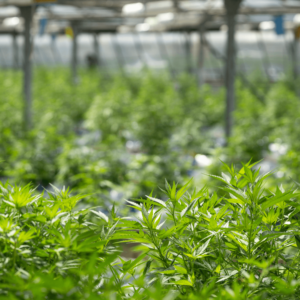
Health Benefits of CBD
CBD is widely researched and used for a range of health concerns. Some of its most well-documented benefits include:
1. Pain & Inflammation Relief
CBD interacts with vanilloid receptors, which help modulate pain perception and inflammation. It has shown promise in managing conditions like arthritis, migraines, and muscle soreness.
2. Anxiety & Stress Reduction
CBD’s effect on serotonin receptors makes it a popular choice for managing anxiety disorders, PTSD, and general stress.
3. Sleep Support
CBD helps regulate sleep cycles by promoting relaxation and reducing nighttime restlessness.
4. Neuroprotective Properties
Studies suggest that CBD has potential benefits for neurological conditions like epilepsy, Alzheimer’s, and Parkinson’s disease.
Health Benefits of CBG
While research on CBG is still emerging, early findings suggest it offers unique advantages not commonly associated with CBD.
1. Digestive Health
CBG has been studied for its role in reducing gut inflammation, making it a promising option for conditions like IBS and Crohn’s disease.
2. Antibacterial & Antimicrobial Properties
Studies indicate that CBG may be effective against antibiotic-resistant bacteria, including MRSA infections.
3. Eye Health & Glaucoma Relief
CBG may help reduce intraocular pressure, offering potential relief for glaucoma patients.
4. Mood & Mental Health
CBG’s direct interaction with CB1 receptors suggests it may help with depression and neuroprotection.
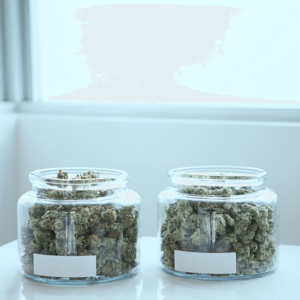
Potential Side Effects of CBG vs. CBD
Both CBD and CBG are generally well-tolerated and considered safe for most medical marijuana users. Unlike THC, neither cannabinoid is intoxicating, meaning they won’t produce a “high” or impair cognitive function.
However, as with any supplement, individual responses may vary, and some mild side effects have been reported.
CBD Side Effects
CBD is widely used for relaxation, anxiety relief, pain management, and sleep support, but in some cases, it can cause:
- Drowsiness or Fatigue: Higher doses of CBD, especially when taken for sleep or anxiety, may lead to drowsiness or a feeling of sluggishness. This is more likely when combined with other sedatives or alcohol.
- Dry Mouth: Like many cannabinoids, CBD can reduce saliva production, leading to a dry mouth or cottonmouth sensation. Staying hydrated can help counteract this effect.
- Changes in Appetite: While CBD can either increase or decrease appetite, the effect varies depending on the individual and dosage. Some people report feeling less hungry, while others may experience mild hunger stimulation.
- Possible Drug Interactions: CBD interacts with liver enzymes responsible for metabolizing certain medications. This can lead to higher or lower levels of prescription drugs in the bloodstream, potentially affecting their efficacy. Individuals taking medications for blood pressure, anxiety, or epilepsy should consult a healthcare provider before using CBD.
- Gastrointestinal Issues: In rare cases, high doses of CBD may cause mild digestive discomfort, such as nausea or diarrhea. This is usually temporary and subsides as the body adjusts.
CBG Side Effects
CBG, while less researched than CBD, appears to have a strong safety profile. However, some users experience:
- Low Blood Pressure: CBG may cause a temporary drop in blood pressure, leading to mild dizziness or lightheadedness, particularly when standing up too quickly. People prone to hypotension (low blood pressure) should use caution.
- Dizziness: Some individuals report a slight sense of dizziness or imbalance after taking CBG, especially at higher doses. This is likely due to its vasodilation effects (expanding blood vessels), which can alter circulation.
- Increased Appetite: Unlike CBD, which can have mixed effects on hunger, CBG is more likely to stimulate appetite. This could be beneficial for individuals struggling with appetite loss due to medical conditions but may not be ideal for those trying to manage weight.
- Dry Mouth: Similar to CBD, CBG can reduce saliva production, leading to a dry mouth sensation. Drinking water and staying hydrated can help mitigate this effect.
- Potential Digestive Sensitivity: While uncommon, some users may experience mild stomach discomfort or nausea, particularly when consuming CBG in high doses or on an empty stomach.
Minimizing Side Effects: Best Practices
To ensure a positive experience with either CBD or CBG, consider the following guidelines:
- Start Low, Go Slow: If you’re new to cannabinoids, begin with a low dose and gradually increase it over time. This helps your body adjust and reduces the risk of unwanted effects.
- Monitor Reactions: Pay attention to how your body responds to each cannabinoid, especially if you’re taking other medications or have pre-existing conditions.
- Stay Hydrated: Since both CBD and CBG can cause dry mouth, drinking plenty of water throughout the day can help alleviate discomfort.
- Time Your Dosage Wisely: If CBD makes you drowsy, take it in the evening rather than during the day. Conversely, if CBG boosts focus and energy, it’s best used in the morning or early afternoon.
- Consult a Healthcare Provider: If you take prescription medications or have concerns about potential interactions, talk to a doctor before adding CBD or CBG to your wellness routine.
While side effects from CBD and CBG are rare and typically mild, it’s important to listen to your body and adjust usage accordingly. As research into cannabinoids continues, we’ll gain even more insight into their long-term effects and optimal dosages.

Final Thoughts
CBG and CBD offer distinct yet complementary benefits, making them valuable additions to the wellness space. While CBD is the more well-known choice for relaxation, pain relief, and sleep, CBG stands out for focus, digestion, and antibacterial properties.
If you’re unsure which to try, you can experiment with CBG-CBD blends to see how they work together. As research progresses, expect to see more CBG-based products hitting the market, giving consumers even more ways to personalize their cannabinoid experience.
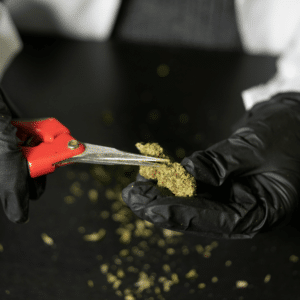
CBG vs CBD: Frequently Asked Questions
Is CBG or CBD better?
Neither CBG nor CBD is inherently “better”—it depends on your individual needs and health goals. CBD is well-known for its calming effects, ability to reduce anxiety, pain, and inflammation, and its role in supporting sleep and overall relaxation. On the other hand, CBG is often preferred for its therapeutic potential to improve focus, support digestive health, and offer antibacterial benefits.
If you’re looking for stress relief and relaxation, CBD may be the better choice. If you need mental clarity, gut health support, or an energy boost, CBG might be more effective. Many people find that combining both cannabinoids provides a well-rounded experience due to the entourage effect, where cannabinoids work together for enhanced benefits.
What does CBG do for your body?
CBG interacts with the endocannabinoid system (ECS) in a way that supports various bodily functions, including:
- Digestive Health: May help reduce inflammation in the gut, benefiting those with IBS and Crohn’s disease.
- Focus & Mental Clarity: Unlike CBD, which is more calming, CBG is thought to promote alertness and cognitive function.
- Antibacterial & Antimicrobial Properties: Research suggests CBG has potent antibacterial effects, including potential action against antibiotic-resistant bacteria like MRSA.
- Neuroprotection: Some studies suggest CBG may help protect nerve cells, making it a promising option for neurodegenerative conditions.
- Glaucoma Support: CBG may reduce intraocular pressure, potentially benefiting those with glaucoma.
Because of these diverse effects, CBG is gaining popularity as a natural wellness supplement for both physical and mental health.
Is CBG better for anxiety?
CBG may help treat anxiety disorders, but CBD is generally considered the better option for managing stress and anxiety-related disorders. CBD interacts with serotonin receptors, which are directly linked to mood regulation, making it effective for calming the central nervous system and reducing anxiety.
CBG, while not as widely studied for anxiety, does have mood-boosting and neuroprotective properties, which may help some individuals with stress, mild anxiety, or depression. However, some users report that CBG feels more energizing and uplifting, so it may not be ideal for those seeking deep relaxation or sleep support.
For people who experience anxiety and brain fog, a combination of CBD and CBG may offer a balanced effect, with CBD providing calmness and CBG promoting mental clarity.
What are the downsides of CBG?
While CBG is generally well-tolerated, there are a few potential downsides to consider:
- Limited Research: Compared to CBD, there is less scientific data on CBG’s long-term effects.
- Cost: CBG is significantly more expensive than CBD due to its low natural concentration in cannabis plants, making extraction more costly.
- Possible Side Effects: While rare, some users report low blood pressure, dizziness, dry mouth, or increased appetite after taking CBG.
- Availability: Since CBG is less common, it can be harder to find reputable, high-quality CBG products compared to the abundance of CBD options.
If you’re new to CBG, start with a low dose and monitor how your body responds. As research expands, we’ll likely learn more about its optimal usage, benefits, and risks.




